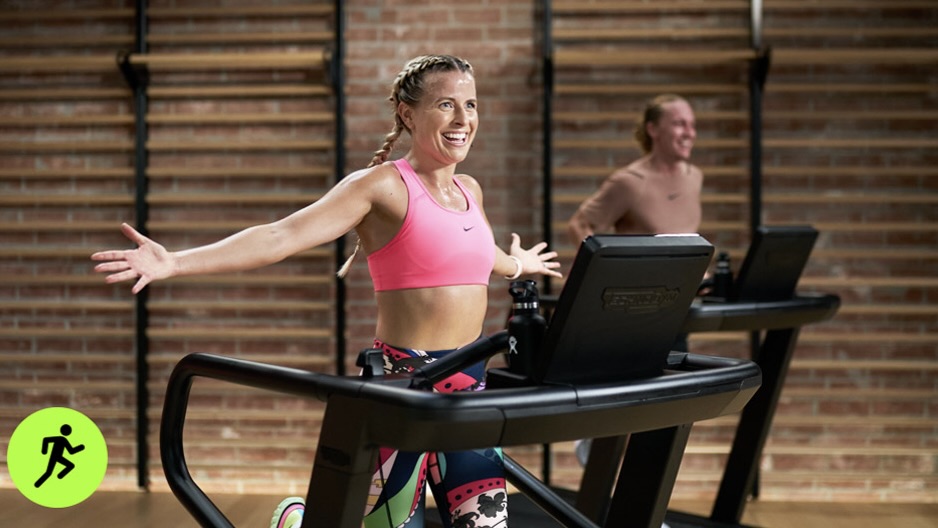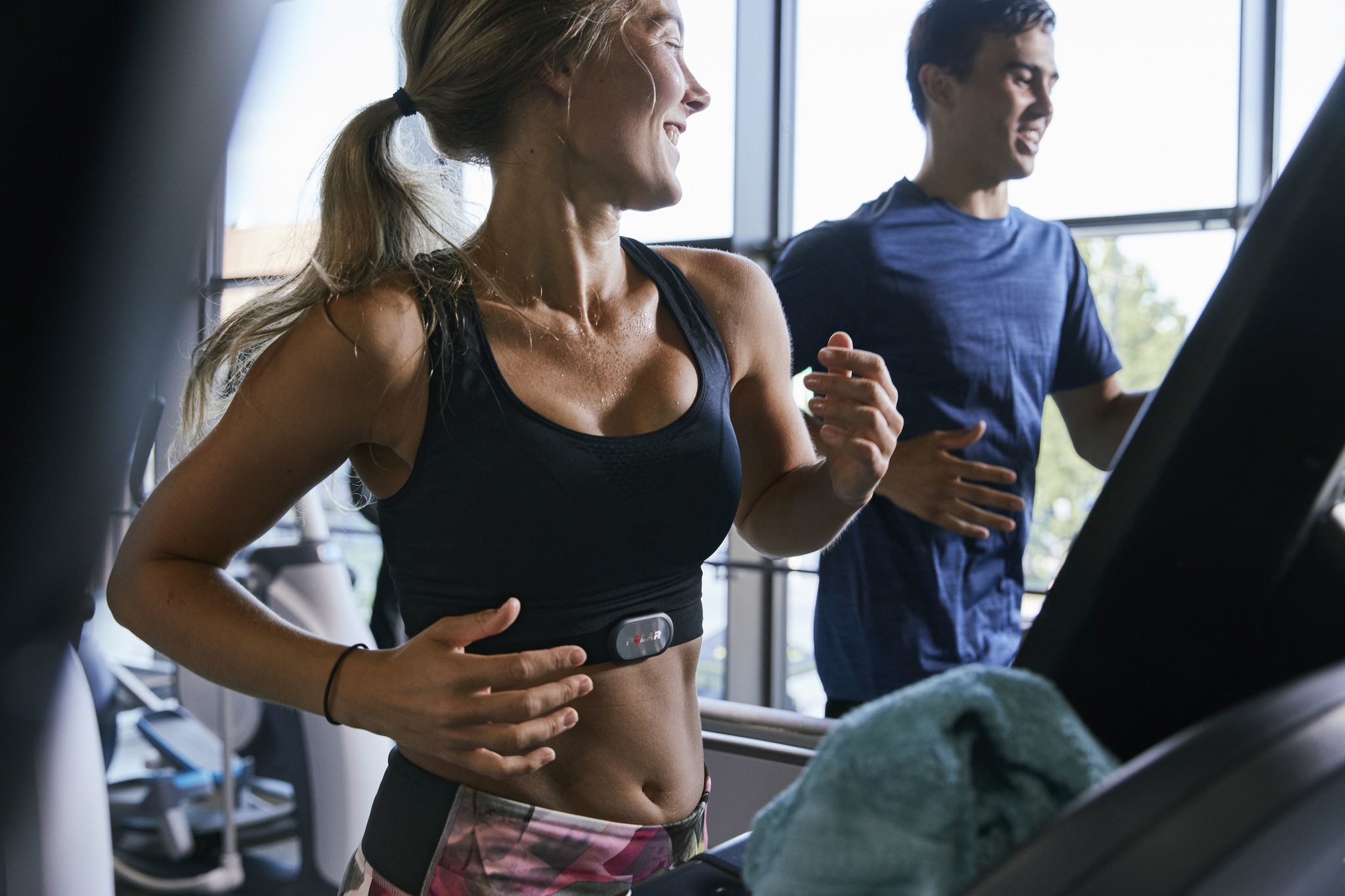Apple Fitness Plus treadmill workouts vs outdoor running: Which is better?
Guided workouts vs the great outdoors.

Some people hate running. Some people love it. And some people think they hate running because they remember being forced to do laps in high school, but might actually enjoy it — if they just found a way to train that works for them.
Apple Fitness Plus isn’t just for people who want to do high-intensity interval training (otherwise known as HIIT) or yoga workouts in their front room: the service also does a nice line of treadmill and cycling workouts. You can get guided audio-only workouts to use outdoors, and we’ll come to those a bit later on, but the treadmill workouts are where the meat of Fitness Plus’ running content is.
Designed and structured a little like Peloton classes, these sessions are easy to follow along with if you have one of the best treadmills for Apple Fitness Plus. On the other hand, you might not want to purchase a treadmill, and would rather buy a pair of running shoes and practice jogging outdoors.
Below, we’ll break down the benefits and disadvantages of each approach to running training, including which is easier for beginners to get started with, which costs more, and which is better for hitting your fitness goals.
Treadmill workouts: Benefits

To start with, Apple Fitness Plus’ treadmill workouts are great for beginners. Instructors like Jamie-Ray Hartshorne guide you on setting up your treadmill, exercising safely, and walking you through each workout. The workouts last up to 45 minutes, so you know exactly how long each workout is going to take. This is great for planning your day around: a jog around the park or on your local streets needs a little bit of planning to ensure you arrive back home in good time.
Apple Fitness Plus’ content is always inclusive, providing clear, easy instructions to help users get started. This makes it more approachable to beginners than jogging alone, as going it solo can feel daunting if you don’t really know what you’re doing.
Fitness Plus workouts tend to follow a HIIT structure. Once you’re all warmed up, you’ll be encouraged to up the speed or gradient for a short amount of time, working harder than normal, before bringing it back down for some active recovery. You’ll repeat this again and again, with modifications to make the workout easier or harder.
HIIT is great for weight loss and improving exercise capacity, according to studies, as it encourages you to work harder (in short bursts) than you would do while jogging at a steady pace. This helps you burn more calories and encourages EPOC - post-exercise oxygen consumption, burning calories even after you finish the session.
Finally, there’s the treadmill. Making an investment into your health by buying a large piece of exercise equipment may act as a financial prompt to get the most out of the machine - although not always, judging by the amount of Pelotons that turned into expensive clothes racks after lockdown! Depending on your choice of treadmill, the deck or belt is often slightly cushioned, making it more forgiving to run on for long periods than the hard concrete of your local roads.
Treadmill workouts: Disadvantages
There are a few disadvantages when it comes to training indoors with a treadmill. For one thing, while investing in yourself by buying a treadmill is generally a good thing, it’s not cheap: the expense includes not just the initial cost of the treadmill, but monthly subscriptions to Apple Fitness Plus, and if you don’t already own it, one of the best Apple Watches to properly use Fitness Plus as well. Add that all up over the cost of a year and compare it to a single pair of running shoes, and you start to see the appeal of running outdoors.
Treadmills also come with practical considerations: they’re cumbersome things and tend to dominate all but the biggest of rooms. Unless you purchase a folding treadmill, they’re also not easy to store, and if you live in apartment buildings, running on them might make a lot of noise for the people below you.
If you don’t own a treadmill, you can always take your phone to a local gym and use the treadmill there - but then you’re adding the cost of a Fitness Plus subscription on top of a monthly gym membership.
There are also proven benefits to running outdoors, which we’ll go into later: getting more sunlight, finding a little patch of nature if you can, and taking your eyes off a screen. Fitness Plus treadmill workouts tend to necessitate looking at your TV, iPhone, or iPad, and you might not want to add more screen time into your life.
Outdoor workouts: Benefits

Running outdoors is a great leveler. Simply put on some comfortable clothes, lace up your running shoe of choice, warm up, and get going. There’s no need for fancy equipment beyond a good pair of running shoes and perhaps a decent pair of AirPods, at least until you come to tackle long distances and want to invest in sweat-wicking clothes or better shoes.
For beginners who need a little guidance, there are plenty of running plans out there, perhaps most famously Couch to 5K, which swaps between running and walking to help slowly build up your endurance. In fact, it uses the same approach as the Apple Fitness Plus workouts: running fast and intense, then slower to recover. Old hands won’t need this sort of guidance and will be happy to run for extended periods.
Running outdoors for as little as twenty minutes can provide benefits beyond burning calories. Exposure to sunlight, even if the day is somewhat overcast, means getting your daily dose of mood-boosting, immune-boosting vitamin D. If you can jog to a local park or get into nature, even better: one study found just 10 minutes of time in nature has a positive impact on our mental health.
If you want more guidance, you can still use your Apple Fitness Plus subscription with audio-only Time to Run workouts. There, one of the Apple Fitness Plus instructors, such as running coach Cory Wharton-Malcolm, will narrate their run around a famous location such as Yosemite National Park or Chicago, as well as help to guide your running speed and cadence through coaching tips.
Outdoor workouts: Disadvantages
Running outdoors instead of using one of the Apple Fitness Plus treadmill workouts means less guidance and modularity. On a treadmill, you can adjust the gradient and speed to your desired setting, and every Fitness Plus workout includes modifications to make the exercise easier or harder. Running on solid ground is a very different story: if a big hill is in front of you, there are only three choices: you either run up it, walk up it, or turn around and go back.
The weather is also a consideration. Truly committed runners used to training in all weathers might layer up and go for runs in the freezing cold or heavy rain, but for the rest of us, extreme weather means we stay indoors. If you live in an area that gets a lot of bad weather, this may have you wishing you invested in that treadmill beforehand.
While running with groups – either friends or running clubs – can help you stick to a habit, running alone is hard, and it’s more challenging to motivate yourself to get out the front door than it is to hop on a treadmill. With Fitness Plus, you can choose your desired workout length and intensity, so if you want to fit in 15 minutes of exercise before work, it’s far easier to do so than to lace up and head outside.
Verdict
Ultimately, it depends on what works for you: if you’re looking to save money and you don’t need as much guidance, running outdoors is always going to be the better choice. If you look at screens a lot during the day and see running as an opportunity to unwind, outdoors is probably better as well due to the therapeutic benefits of nature and anti-screen time.
However, if you want to take full advantage of your Fitness Plus subscription, you would like more guidance and modularity on your fitness journey, or you already have a gym membership, Apple Fitness Plus’ treadmill workout content suite is stellar and well worth your consideration. Ultimately, try both and see what works - after all, Apple Fitness Plus does offer three months absolutely free…
Master your iPhone in minutes
iMore offers spot-on advice and guidance from our team of experts, with decades of Apple device experience to lean on. Learn more with iMore!
Matt is a freelancer for iMore and TechRadar's expert on all things fitness, wellness and wearable tech. A former staffer at Men's Health, he holds a Master's Degree in journalism from Cardiff and has written for brands like Runner's World, Women's Health, Men's Fitness, LiveScience and Fit&Well on everything fitness tech, exercise, nutrition and mental wellbeing.
Matt's a keen runner, ex-kickboxer, not averse to the odd yoga flow, and insists everyone should stretch every morning. When he’s not training or writing about health and fitness, he can be found reading doorstop-thick fantasy books with lots of fictional maps in them.
